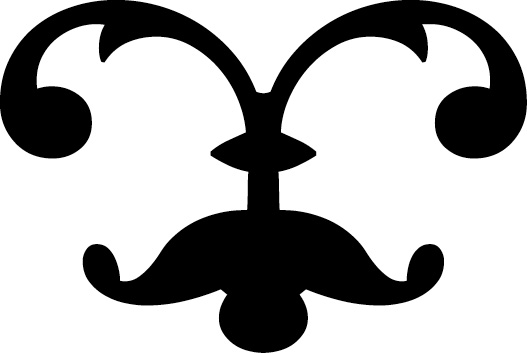The Secrets We Kept (28 page)
Read The Secrets We Kept Online
Authors: Lara Prescott





THE INFORMANT
There he was: standing in front of a bald tree wearing a cap and belted jacket, his right arm across his body, his hand just below his heart. The article accompanying the photograph was in French, but I recognized the word
Nobel.
“What does this say?” I asked my English-speaking waiter when he returned with my petit pain au chocolat.
“Boris Pasternak has won the Nobel Prize.”
“Well, that’ll spike book sales,” I said. “Have you read it?”
“Of course!”
Everyone had read it. Thanks to my former employer,
Doctor Zhivago
had crossed the border undetected, finding its way back to the country where it was written. The Nobel wasn’t part of the Agency’s plan—not as far as I knew—but I was sure they’d take credit for it anyway. I could picture them: standing in a circle, grins on their faces, celebrating with vodka shots. The only face I didn’t imagine in that circle was Henry Rennet’s. I knew he was no longer in Washington. In fact, I knew his exact location.
The day I arrived in Paris, I checked in to the Hotel Lutetia—not under the name Sally Forrester or Sally Forelli, or any other name I’d used before, but under my new name Lenore Miller. I then dropped a letter addressed to Sara’s Dry Cleaners into a bright yellow post box. The letter contained the coordinates of Henry’s location in Beirut and details of his new mission helping to launch a radio station to broadcast Western-friendly, pro-Chehab messages.
Giving up Henry was not my first plan. If Frank had been right about Henry’s being a mole, I thought I could acquire enough information to ruin him through the proper channels. All those years that the Old Boys’ Club thought I was just twirling my hair and giggling mindlessly at their dumb jokes, what I had really been doing was listening. But when Henry got word that I was poking around about him, he put a swift end to my Agency days. Oh well. Plan B.
Only Bev knew I’d left the country. She didn’t ask where I was going, but when I told her I’d be buying a one-way ticket, my old OSS friend quietly got up and left her kitchen, returning a few minutes later with an envelope fat with money. “His
gin rummy
money,” she said, pressing it into my hands. “He’ll never miss it.” I said I couldn’t possibly accept it, and she told me to stop being stupid. Then she slipped off the diamond tennis bracelet her husband had given her—an apology for yet another dalliance. “Pawn it.”
My last night in Washington, I put on a record and got out my suitcase, still not knowing where I’d be going. I just knew that I needed to leave, to go someplace where I wouldn’t know a soul—that there’d be no going back after I did what I was about to do. It wasn’t until I removed my beige cashmere sweater from a drawer and discovered the Eiffel Tower print I’d planned to give Irina—still wrapped in butcher paper and tied with red string—that I made up my mind.

They sent word by way of roses. Two dozen, white as a peace offering, placed on my vanity while I was out. I plucked the small card from the bouquet:
Nice to hear from you,
it read in Italian. I turned the card over. Blank.
It was unnerving to think they had been in my room, had gone through my things. The room was now certainly bugged. It was like seeing a spider during the day, then thinking you feel it crawling on you in the middle of the night. But after I gave them the intel on Henry, surveillance was expected. I had no one to talk to, so it made me laugh to think of them listening to me listening to the Chet Baker record I’d purchased at a flea market. Perhaps they’d eventually tire of “My Funny Valentine” and listen in on someone else.

Weeks passed. The white roses wilted, their shriveled petals piling up on the vanity. The newness of the City of Light had worn off, and I was running out of Bev’s money. And not knowing what, if anything, had become of Henry began taking its toll. When I thought of him—and I always thought of him—my insides felt as if they were filling up with cold, dark smoke. When I couldn’t sleep, I’d lie on my back and picture the black smoke twisting out of my mouth and curling toward the ceiling.
To give my days structure, I began visiting every bookstore, bookstall, library, and bouquiniste along the Seine, seeking out copies of
Zhivago.
Though I longed to read it, I hadn’t brought myself to do it. It was connected to them, to her, and I knew that to read it would bring back memories of things I didn’t want to think of, things that would make my heart pound when I woke up and found myself halfway around the world, alone. Yet I sought it all over Paris, spending the last of my funds accumulating a small tower of copies.
When I could no longer afford books, I developed a new routine: sitting in my room all day, listening to my record, taking baths, and napping. I began subsisting on stale baguettes, apricot preserves, and warm Perrier. I kept the curtains drawn, and days passed without my even looking out the window.
Eventually I ran out of money and began returning my copies of
Zhivago
one by one. And it was there—waiting in line at Le Mistral—that someone tapped me on the shoulder. “Bonsoir,” said the petite woman with finger-waved hair, dressed in an oyster-shell-pink pencil dress and black velvet pillbox hat. She picked up a copy of
Lolita
and smiled as if she knew me.
“Do you know where the travel section is?” the woman asked, switching to English.
“I’m sorry, I don’t.”
“I’m looking for a book. About Beirut. Do you know where that might be?”
She turned and left. I followed her out, tucking
Zhivago
back into my purse. I followed her past Square René Viviani. I wished I could stop and touch the famed locust tree for good luck, but we continued across la rue du Petit-Pont, past the church of Saint-Séverin, its Gothic gargoyles staring down at me. When we passed the church of Saint-Sulpice, I thought of Irina—what she must have looked like in that nun’s habit.
I followed her into the Jardin du Luxembourg, and as we circumnavigated the octagonal basin, the woman spoke, her voice low and obscured by the fountain.
“He checked in to a hotel in Beirut under the name Winston, as you said he would. Within an hour, he checked back out of the hotel—with help from two of our bellmen.” She paused. “We thought you might want to know.”
What did Henry think when he heard the knock on the door? Did he have any sense of what was coming? Did he feel paralyzed? Did he scream? If so, did anyone hear him? I knew he hadn’t, but I wished, oh how I wished, that he thought of me when they took him.
“That’s all,” the woman finished. She stopped to face me and kissed both my cheeks.
“That’s all,” I said when she had gone.
Back in my hotel room, the dead roses had been replaced by a fresh bouquet. I splashed water on my face and applied my red lipstick. I dressed in black slacks, a black blazer, and black leather kitten heels. I opened the curtains, blotted my lips, and assessed myself in the mirror.
I’d been trained to spot a double. Calm under duress, above average in intelligence, transient, easily bored. Ambitious, but with short-term goals. Unable to form lasting relationships. They often defect because of their own interests—money, power, ideology, revenge. I knew these traits, was trained to look for them. So why had it taken so long for me to recognize them in myself?
